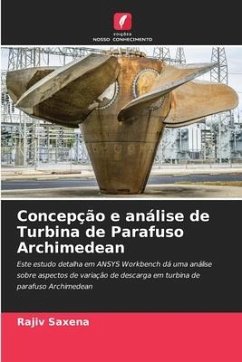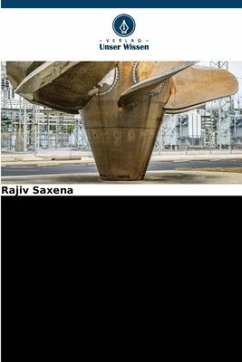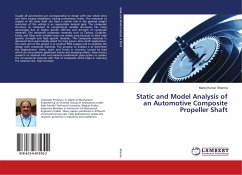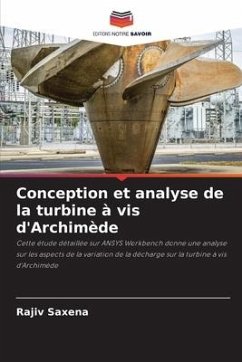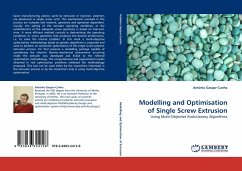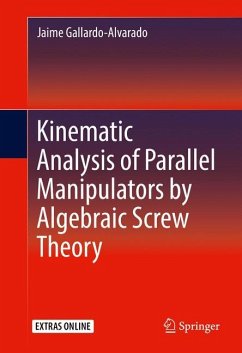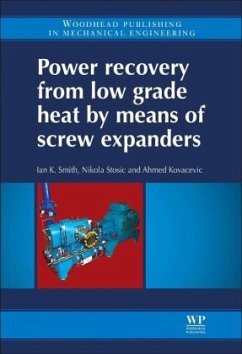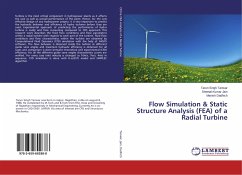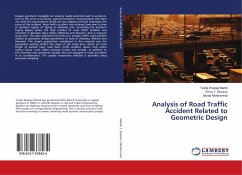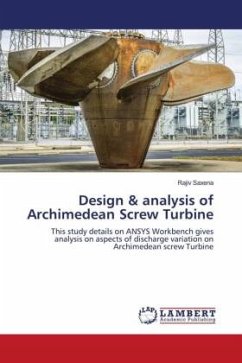
Design & analysis of Archimedean Screw Turbine
This study details on ANSYS Workbench gives analysis on aspects of discharge variation on Archimedean screw Turbine
Versandkostenfrei!
Versandfertig in 6-10 Tagen
29,99 €
inkl. MwSt.

PAYBACK Punkte
15 °P sammeln!
This study details on ANSYS Workbench gives analysis on aspects of discharge variation on Archimedean Screw Turbine which would help in producing results regarding effects of stresses on the turbine. By using ANSYS Workbench we can find out stresses distribution and deformation of flights in Screw Turbine easily. Generation of 3-D geometry and meshing of those profiles to evaluate performance of screw turbine based on number of flights could also be done in ANSYS Workbench. Simulation of working of Screw Turbine by using "Transient Structural Mode" in ANSYS Workbench is conducted for study of ...
This study details on ANSYS Workbench gives analysis on aspects of discharge variation on Archimedean Screw Turbine which would help in producing results regarding effects of stresses on the turbine. By using ANSYS Workbench we can find out stresses distribution and deformation of flights in Screw Turbine easily. Generation of 3-D geometry and meshing of those profiles to evaluate performance of screw turbine based on number of flights could also be done in ANSYS Workbench. Simulation of working of Screw Turbine by using "Transient Structural Mode" in ANSYS Workbench is conducted for study of stress distribution and deformations. The numerical analysis is conducted using ANSYS software commercially available. Transient Structural Mode in ANSYS Workbench can be used because it can import files from other modeling software, through this we can observe stress distribution, thermal contours and deformation. Also the Archimedean turbine is also analyzed from design point of view with respect to the different number of flights by using ANSYS Workbench, simulating the behavior of stresses through the rotating blades and investigating effects on performance of turbine.



